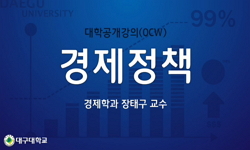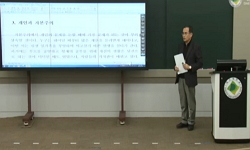Of the four formerly high-performing Asian economies that were hit hardest by the unprecedented magnitude of economic crisis in the late 1990s, namely, Thailand, Malaysia, Indonesia and South Korea, Malaysia alone opted to retain a pre-crisis developm...
http://chineseinput.net/에서 pinyin(병음)방식으로 중국어를 변환할 수 있습니다.
변환된 중국어를 복사하여 사용하시면 됩니다.
- 中文 을 입력하시려면 zhongwen을 입력하시고 space를누르시면됩니다.
- 北京 을 입력하시려면 beijing을 입력하시고 space를 누르시면 됩니다.

Capital Flows, Political Cleavages and Economic Policy Choice : Malaysia during the Asian Economic Crisis
한글로보기https://www.riss.kr/link?id=A30068192
-
저자
Choi, Jungug (Policy Planning)
- 발행기관
- 학술지명
- 권호사항
-
발행연도
2003
-
작성언어
English
- 주제어
-
KDC
981.000
-
등재정보
KCI등재
-
자료형태
학술저널
- 발행기관 URL
-
수록면
383-400(18쪽)
- 제공처
- 소장기관
-
0
상세조회 -
0
다운로드
부가정보
다국어 초록 (Multilingual Abstract)
Of the four formerly high-performing Asian economies that were hit hardest by the unprecedented magnitude of economic crisis in the late 1990s, namely, Thailand, Malaysia, Indonesia and South Korea, Malaysia alone opted to retain a pre-crisis development model while defying neoliberal reforms. This study deals with crucial structural conditions that favored Malaysias unorthodox policy choice during the crisis. It holds, specifically, that the comparatively heavy reliance of Malaysia on foreign direct investment(FDI) in pre-crisis development financing enabled the country to maintain a relatively great extent of sovereign policy autonomy in adverse international circumstances, by reducing external vulnerability to volatile short-term capital flows. This study continues to assert that the great contribution of FDI to development financing, in turn, was due largely to Malaysias unique ethnic cleavage structure. This implies that political cleavages ultimately determine economic policy choice.
동일학술지(권/호) 다른 논문
-
- 한국동남아학회
- 박승우
- 2003
- KCI등재
-
- 한국동남아학회
- 전제성
- 2003
- KCI등재
-
- 한국동남아학회
- 제대식
- 2003
- KCI등재
-
- 한국동남아학회
- 홍석준
- 2003
- KCI등재




 KISS
KISS







